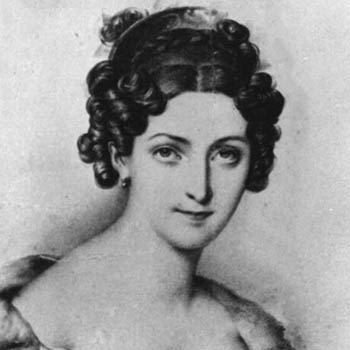
Harriet Taylor Mill (née Hardy) was born in 1807 in Walworth, South London, as the daughter of a midwife. She was educated at home and became interested in poetry and writing at a young age. She married John Taylor, a pharmacist, aged 18. Even before she met John Stuart Mill, she was writing extensively on topics such as women’s rights (particularly in marriage, domestic violence and education), politics, ethics and religious toleration. At the same time, she was a mother to three children.
Harriet Taylor met John Stuart Mill in 1831 at a dinner. The two formed a close friendship and intellectual partnership over the next twenty years, and their relationship soon became romantic. They eventually married in 1851, two years after the death of her husband. The form of their marriage reflected the pair’s deep commitment to equality: Stuart Mill dismissed in writing any legal rights he would acquire over her. They continued to collaborate until Taylor Mill died in 1858 of respiratory failure.
To this date, there exists a large amount of debate over the extent of Harriet Taylor Mill’s collaboration with John Stuart Mill. Despite Stuart Mill’s praise—he once wrote to her that “the better half of [all my work] is yours”1—many of her contemporaries and more recent historians dismissed her abilities. Among other things, she has been branded “a philosopher in petticoats”, “a female autocrat”, and “a domineering… perverse and selfish, invalid woman”.2 However, it is certain that Taylor Mill, as well as being a formidable thinker in her own right, contributed significantly to John Stuart Mill’s thought, who systematized her insights into a utilitarian framework. For example, she wrote one chapter of Mill’s Principles of Political Economy on the importance of education to the working classes and the future of socialism, and is credited for highlighting to Mill the crucial distinction between the production and distribution of wealth–a distinction often glossed over by contemporary economists, and that contributed to Stuart Mill’s own growing political radicalism. Stuart Mill referred to On Liberty, a radical utilitarian defense of individuality and liberalism, as a “joint production” of him and Harriet.3
Taylor Mill is most famous, however, for her views on women’s rights, expressed in her 1851 essay The Enfranchisement of Women and developed further in Stuart Mill’s 1869 essay The Subjection of Women. She supported “equality in all rights, political, civil, and social, with the male citizens of the community”.4 For example, she argued that paid work by married women is not only permissible but desirable because “dependence on the woman’s side [on her husband] is demoralising to the character of both”.5 She was also outspoken on marriage, likening contemporary forms of marriage to slavery as based on the threat of physical force (domestic violence), and promoted instead a companionate model of marriage based on mutual attraction. Her writings on marriage, divorce, domestic violence, and women’s economic, educational and civil empowerment were all valuable contributions to the early feminist movement.
How to Cite This Page
Want to learn more about utilitarianism?
Representative Works of Harriet Taylor Mill
- The Enfranchisement of Women (1851)
- The Complete Works of Harriet Taylor Mill (1998)
Resources on Harriet Taylor Mill’s Life and Work
- Stanford Encyclopedia of Philosophy article on Harriet Taylor Mill
- Harriet Taylor Mill WordPress Blog
- Harriet Taylor Mill and the Enfranchisement of Women on Miranda Yardley’s blog
- Harriet Taylor Mill Wikipedia article
Prominent Quotes of Harriet Taylor Mill
- “We deny the right of any portion of the species to decide for another portion what is and what is not their ‘proper sphere’. The proper sphere for all human beings is the largest and highest which they are able to attain to.”6
- “There is no inherent reason or necessity that all women should voluntarily choose to devote their lives to one animal function and its consequences. Numbers of women are wives and mothers only because there is no other career open to them, no other occupation for their feelings or activities. Every improvement in their education, and enlargement of their faculties, everything which renders them more qualified for any other mode of life, increases the number of those to whom it is an injury and an oppression to be denied the choice. To say that women must be excluded from active life because maternity disqualifies them for it, is in fact to say that every other career should be forbidden them, in order that maternity may be their only resource.”7
- “[I]f we look to the great majority of cases, the effect of women’s legal inferiority, on the character both of women and of men, must be painted in far darker colours. We do not speak here of the grosser brutalities, nor of the man’s power to seize on the woman’s earnings, or compel her to live with him against her will. We do not address ourselves to any one who requires to have it proved that these things should be remedied. We suppose average cases, in which there is neither complete union nor complete disunion of feelings and character; and we affirm, that, in such cases, the influence of the dependence on the woman’s side is demoralising to the character of both.”8
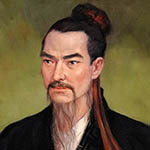
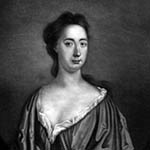
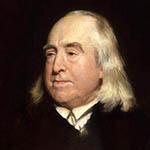
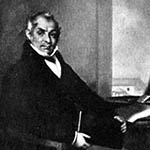
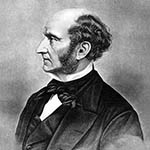
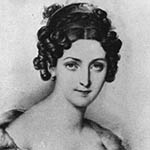
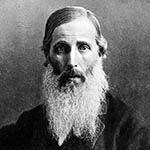
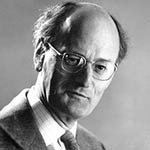

From an 1854 letter John Stuart Mill sent Taylor Mill. ↩︎
Cf. Harriet Taylor Mill, Wordpress Blog. (Accessed: 1st January 2020). ↩︎
Mill, J. S. (1873). Autobiography. Chapter 7: 1840-1870. ↩︎
Taylor Mill, H. (1851). The Enfranchisement of Women. Westminster Review, p. 3 ↩︎
Taylor Mill, H. (1851). The Enfranchisement of Women. Westminster Review, p. 3 ↩︎


